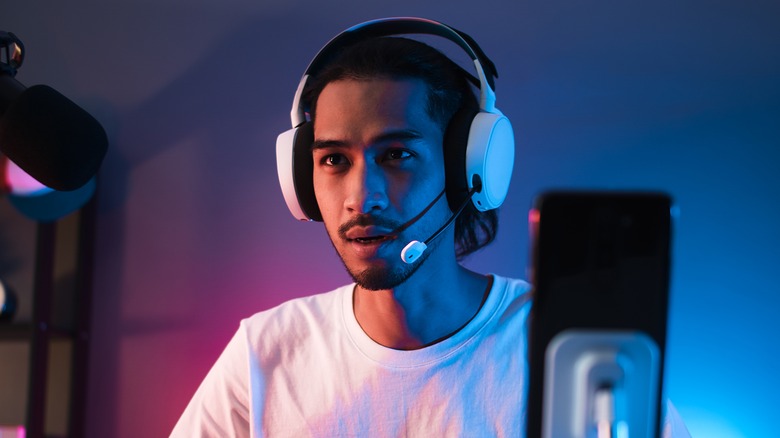The Surprising Reason These Gaming Terms Are Being Banned
As video games continue to grow in popularity globally, not only as entertainment for people to play themselves, but also as part of streams players watch on platforms like YouTube and Twitch, the use of gaming terms and jargon also increase in popularity. While the phrases being used nowadays are certainly different from the terms being used 15 to 20 years ago, the quantity of terms has increased as well. Now, the French government is banning the use of certain gaming terms by government officials, but not for the reason you might think. While a country banning the use of gaming terms might sound like a strange attempt at censorship, the reason for the ban is actually a cultural one.
According to The Guardian, the French government has banned its members and employees from using English based gaming terms, like pro-gamer and streamer, in favor of using French equivalents. The reason for this rule is that French government officials believe that it will be easier for French citizens not into gaming to understand the phrases and gaming as a whole. While part of the idea was to preserve the French language in an increasingly global world, it also allows both members of the government and French citizens to communicate about gaming more easily. Here are some of the terms that have been banned by the French government.
Pro-gamer, streamer, esports, and more have been banned
Among the list of terms that have been banned are many of the modern phrases and concepts that have been floating around the gaming industry for the past few years. "Pro-gamer," "streamer," "esports," "cloud gaming," and more have been banned in favor of French translations. French language conservationists Académie Française provided a list of terms as far back as 2017 of English gaming terms and what French alternatives should be used instead.
This list includes a few more obscure phrases, but ones that are still used fairly frequently. This includes "binge viewing," "casual gamer," "first person shooter," "hardcore gamer," and more. While the French government and the Académie Française likely don't have any issues with gaming being an international pastime, some people could interpret these bans that way. However, this is likely just a country trying to preserve its culture and language, an effort that many people would consider noble. If the French government really wants to make a complete list of gaming terms, it should consult Sony's glossary to gaming terms, to make sure it translates everything it can.


